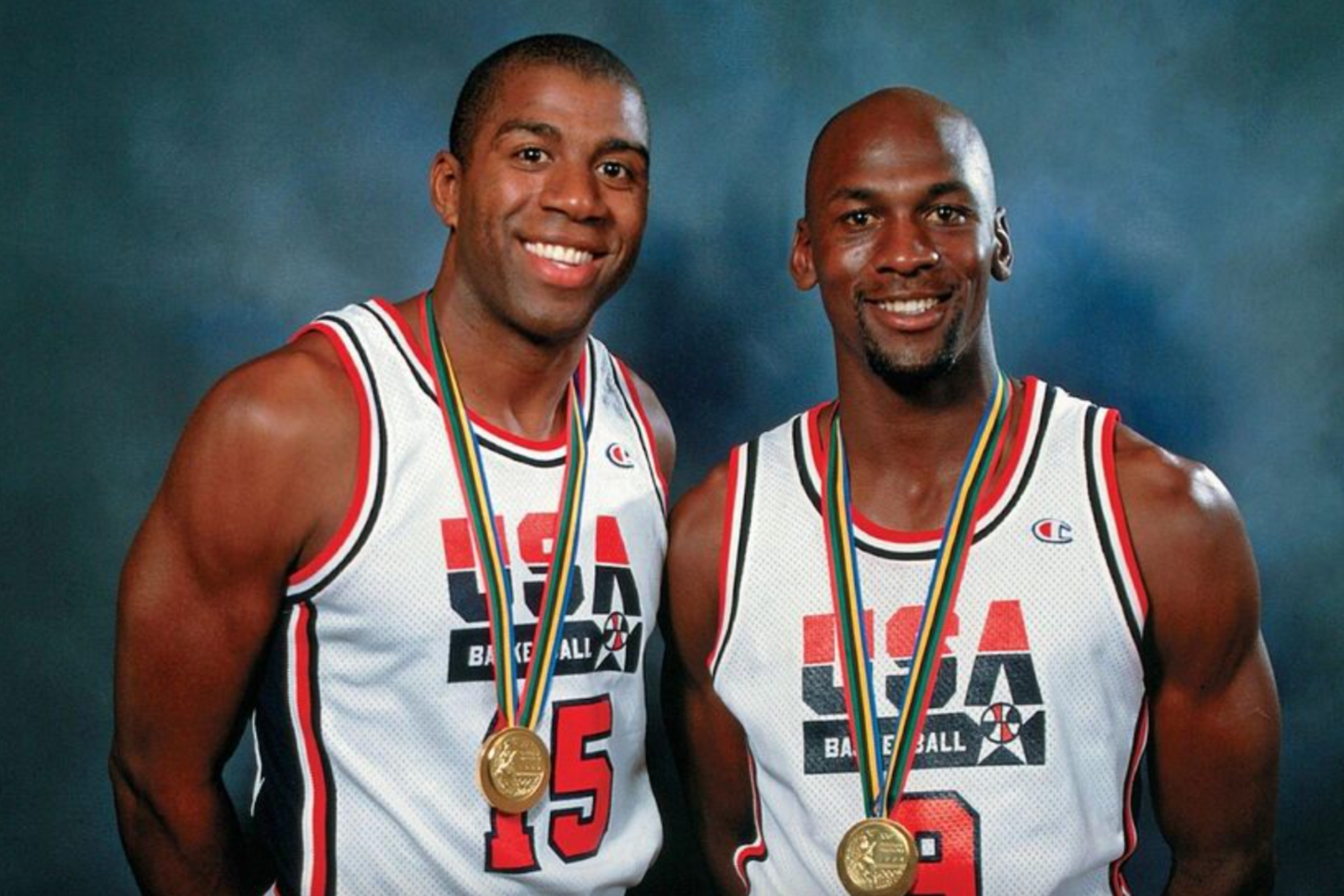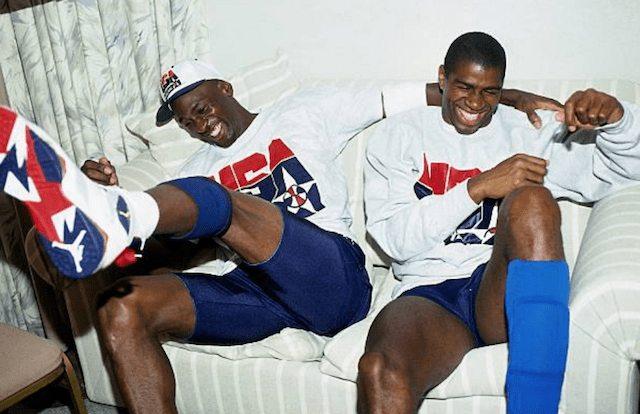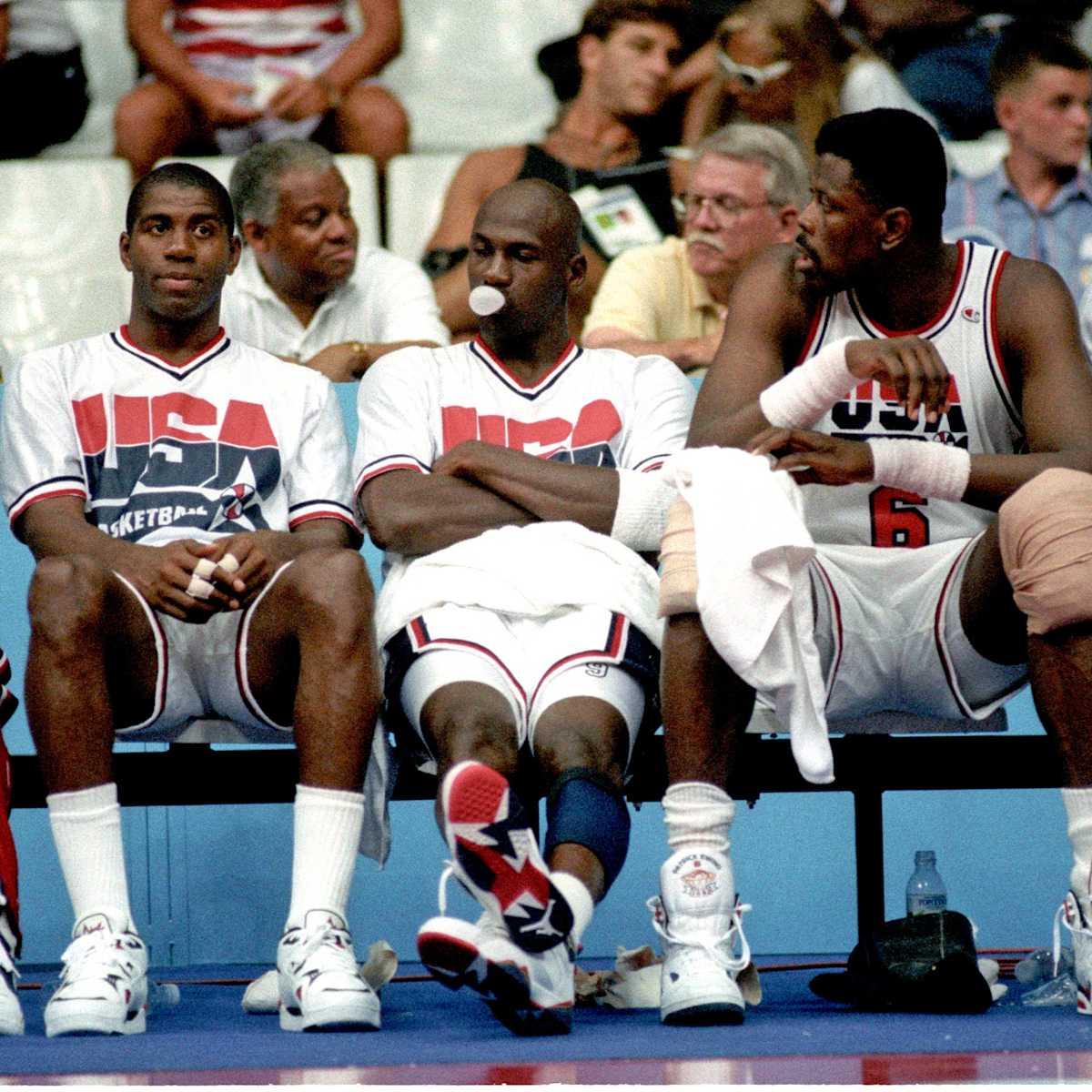In the annals of basketball history, few moments shine as brightly as the 1992 United States men’s Olympic basketball team, famously known as the “Dream Team.” This squad, packed with NBA legends like Michael Jordan, Larry Bird, and Charles Barkley, redefined global basketball and secured a gold medal with an unprecedented dominance, winning games by an average of 44 points. At the heart of this historic team was Earvin “Magic” Johnson, whose inclusion was anything but certain. In a recent interview on BBC’s Influential with Katty Kay on June 23, 2024, Johnson shared the remarkable story of how he convinced a reluctant Michael Jordan to allow him to join the team, a decision that not only shaped the Dream Team but also cemented his legacy as a two-time Naismith Memorial Basketball Hall of Fame inductee.

Johnson’s journey to the 1992 Olympics was fraught with challenges. In November 1991, he stunned the world by announcing his retirement from the NBA after testing positive for HIV, a diagnosis that carried significant stigma at the time. The lack of knowledge about HIV in the early 1990s led to fear and misconceptions, and Johnson faced resistance from some players and fans who questioned whether he should return to competitive play. Despite these obstacles, NBA Commissioner David Stern saw an opportunity to include Johnson in the first Olympic team to feature professional players, a move made possible by a 1989 agreement between the International Olympic Committee and FIBA. However, Stern’s invitation came with a condition: Johnson had to secure the approval of two key figures—Michael Jordan and Larry Bird.
Convincing Jordan, the NBA’s brightest star and a 1984 Olympic gold medalist, was no small feat. Jordan, already a global icon, was initially hesitant about returning to the Olympics, feeling he had little left to prove after his earlier success. Johnson, ever the charismatic leader, crafted a compelling pitch to sway him. He promised Jordan nights filled with card games and days spent on the golf course, assuring him he could dominate games with ease, perhaps scoring 30 points by halftime and then relaxing. This lighthearted yet strategic approach appealed to Jordan’s competitive yet fun-loving nature. As Johnson recalled, “I told Michael, ‘You can play golf all day, come to the game, and we’ll have fun.’ He gave me his blessing.” This pivotal conversation ensured Jordan’s participation, solidifying the Dream Team’s roster.

Larry Bird, battling a nagging back injury, required a different approach. Johnson leaned on their shared history as rivals and friends, forged through intense NCAA and NBA battles. He emphasized the legacy they could create for their children, who would see them play together on the global stage. “Larry, this is a chance for our kids to see us play in the Olympics, not just as Lakers or Celtics,” Johnson said. He promised Bird limited minutes to preserve his health, envisioning moments like a no-look pass to Bird for a signature three-pointer. Bird, moved by the emotional appeal, agreed to join, completing the Dream Team’s core.
Johnson’s inclusion was more than symbolic. Despite knee issues limiting his playing time, he averaged 8.0 points and 5.5 assists per game, second only to John Stockton in assists. His presence on the court brought the same flair that defined his “Showtime” Lakers era, with no-look passes and infectious energy that inspired teammates and fans alike. Off the court, Johnson’s participation was a powerful statement. As an HIV-positive athlete, he used the global stage to challenge stereotypes, receiving standing ovations and inspiring countless individuals. “It was the greatest moment of my life,” Johnson said, reflecting on how the Olympics allowed him to represent his country and family while advocating for HIV awareness.

The Dream Team’s impact transcended basketball. Their 8-0 record and overwhelming victories elevated the sport’s global popularity, drawing billions of viewers and inspiring future generations. Johnson’s role in assembling and leading this team, despite personal and professional challenges, earned him a second Hall of Fame induction in 2010 as a Dream Team member, alongside his 2002 individual honor. His ability to unite rivals like Jordan and Bird showcased his leadership, while his resilience in the face of adversity made history.
Today, Johnson’s legacy endures not only as a basketball icon but as a trailblazer. His story of convincing Jordan and Bird to join the 1992 Olympic team is a testament to his charisma, determination, and vision. The Dream Team remains a benchmark of excellence, and Johnson’s contributions, both on and off the court, continue to inspire. As he approaches his 65th birthday, Magic Johnson’s magic still resonates, proving that true greatness knows no bounds.




